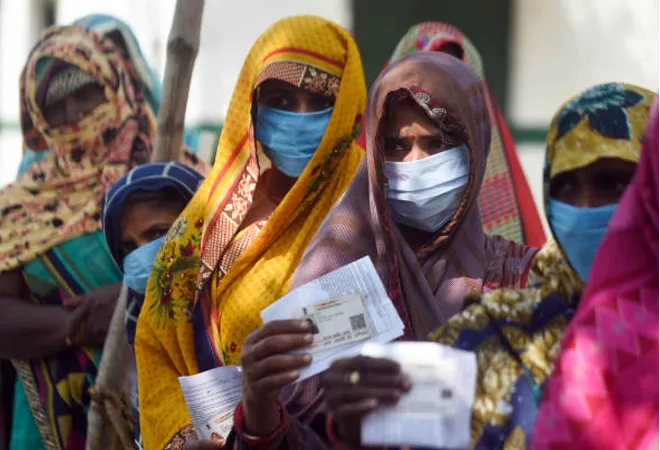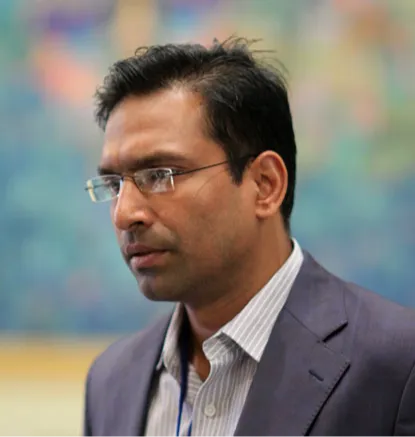
As the election campaign in Uttar Pradesh enters into the final lap, all eyes are on the factors that would shape the final outcome of a very high-pitched campaign. While much of the focus is on the role of caste alliances and Hindutva/polarisation, lately the focus has shifted to welfarism. Of course, this strategy has been previously employed in Indian politics. Political parties and leaders compete and often outbid each other in promising welfare packages and freebies. Given India’s large impoverished population, deep-rooted economic inequality and inequitable access of basic material resources, there is always a strong voting constituency for welfarism. The Centre as well as the State governments indulge in distributing goodies and services to targeted voters, establishing a patron-client relationship. However, the political discourse on social welfare has never been an agnostic idiom of progressive politics of development alone. It is organically enmeshed with identity politics based on strategies of exclusion and polarisation.
Vote bank premised on welfarism
In the ongoing elections in UP, the ruling Bharatiya Janata Party (BJP) is being fiercely challenged by the main opposition Samajwadi Party (SP). The ruling party which was looking very confident during the initial days for the second tenure is suddenly facing a tough competition due to multiple reasons. The rising unemployment, inflation, the mishandling of the pandemic, particularly the second wave, farmers protest, the stray cattle menace are some of the major issues that have eroded the electoral appeal of the ruling BJP government under Chief Minister Yogi Adityanath. What has added to the woes of the ruling party is the last minute desertion of notable OBC leaders who had incidentally played a crucial role in the saffron party’s landslide victory in 2017.
The Centre as well as the state governments indulge in distributing goodies and services to targeted voters, establishing a patron-client relationship.
While the BJP has tried to counter this anti-incumbency through multiple means, including doubling down on the Hindutva rhetoric, a key weapon of the incumbent government remains the ‘new welfarism’ strategy. It needs to be recalled while Hindutva-led polarisation played a decisive role in its 2017 landslide victory, the party leadership very well acknowledges the crucial role played by the Modi government’s efficient delivery of welfare schemes. In particular, the Ujjwala scheme, which provided gas connections to millions of poor households for free, had a major bearing in the final election outcomes. In addition, the Modi government too reaped benefits from its ‘new welfarism’ in the last general elections. A recent study on the general elections revealed the critical role of welfare schemes in the impressive return of Modi-led BJP at the Centre for a successive second term.
It may be noted that BJP’s approach to welfarism has fundamentally transformed under Prime Minister Modi. Firstly, after he took the mantle in 2014, PM Modi has actively embraced digital technology to ensure faster and efficient delivery of public welfare goods. Though he was opposed to Aadhaar (biometric identification in order to identify beneficiaries) platform initiated by the Congress-led UPA government, in power, his government has embraced it for facilitating central welfare schemes in the form of Direct Benefits Transfer (DBT) at a quicker pace. While the Congress-led UPA government had sought the limelight with its popular job scheme (MNREGA), the Modi government has brought out several central schemes (including those of previous governments) into prominence. Some of the central welfare schemes like PM Awas Yojana, Ujjawala Yojana, PM Kisan Nidhi Yojana, Mudra Loans, PM Jeevan Suraksha Yojana, Ayushman Bharat have become household names. Secondly, the technology-induced redistribution of economic goods which bypasses the bureaucratic and political intermediaries has not only allowed the Modi government to address last mile problems in welfare redistribution, but also establish a ‘post-clientelist’ discourse of welfarism in India which is based on efficient and transparent governance and not premised on partisan lines unlike what one can observe amongst some of the regional/ethnic-based parties. Such centralisation of welfare schemes and their efficient deliveries are ensured, where the credit for welfare goods is largely attributed to the Central government with PM Modi as the face of these schemes. This has been backed by a robust communication/dissemination strategy at multiple levels of the government and the party to derive electoral benefits.
The Ujjwala scheme, which provided gas connections to millions of poor households for free, had a major bearing in the final election outcomes.
Welfarism as a strategy to lessen anti-incumbency
The BJP’s ‘new welfarism’ template is in full display in the ongoing elections in UP. Ground reports suggest that in the face of growing anti-incumbency, the incumbent Yogi government has deftly used welfare schemes such as the government-funded brick and mortar houses under PM Housing scheme, toilets under Swachh Bharat Mission, minimum income support to farmers under PM-Kisan Samman Nidhi, cash grants as COVID assistance, medical insurance scheme under Ayushman Bharat, direct cash transfers to women Jan-Dhan account holders. Similarly, electric meter, tap-water connection under Jal Jeevan Yojna, LPG cylinders under Ujjwala Yojna, has been rolled out by the Centre to aid the state. This has created a sizeable section of people (PM Kisan Nidhi and PM Ujjwala Yojana combined have as many as 3.9 crore beneficiaries in the state) who are the beneficiaries of these welfare schemes also called ‘Labharthi Varg’. On this ground, the Yogi government launched new schemes for providing free food grains, COVID relief cash grants as well as grants for school uniform and books for children. Here, JAM (short for Jan Dhan-Aadhaar-Mobile) trinity has been used effectively to plug the leakages of government subsidies and to ensure that grants have been expedited, especially to compensate for the COVID second wave mismanagement keeping the impending elections in mind.
Further, Chief Minister Yogi has largely benefitted from centralised welfarism. Following PM Modi’s footstep, CM Yogi has also used similar centralised technocratic process of distributing welfaristic public goods to undercut the spasms of anti-incumbency against his government. This has created a strong narrative of the need for another term of ‘Double Engine’ government in which transparent and efficient welfarism will be jointly practiced by Modi and Yogi.
Following PM Modi’s footstep, CM Yogi has also used similar centralised technocratic process of distributing welfaristic public goods to undercut the spasms of anti-incumbency against his government.
Will this new welfarism based on swift and efficient delivery of welfare services lessen anti-incumbency and neutralise other threats to the ruling party? There are initial evidences that a section of population is happy with the government for efficiently delivering needy schemes. Yet, there are others who demand much more including jobs, improved incomes, and so on. While welfarism as seen in other states does help the incumbent governments to win elections (i.e., West Bengal, Odisha), it alone cannot be the clincher. For instance, the BJP lost three key states (Madhya Pradesh, Rajasthan, and Chhattisgarhi) in 2018 despite these governments' proven track records in executing key welfare schemes. The results on 10 March will tell whether the ‘new welfarism’ triumphs over the identity politics in UP or vice versa.
The views expressed above belong to the author(s). ORF research and analyses now available on Telegram! Click here to access our curated content — blogs, longforms and interviews.




 PREV
PREV



